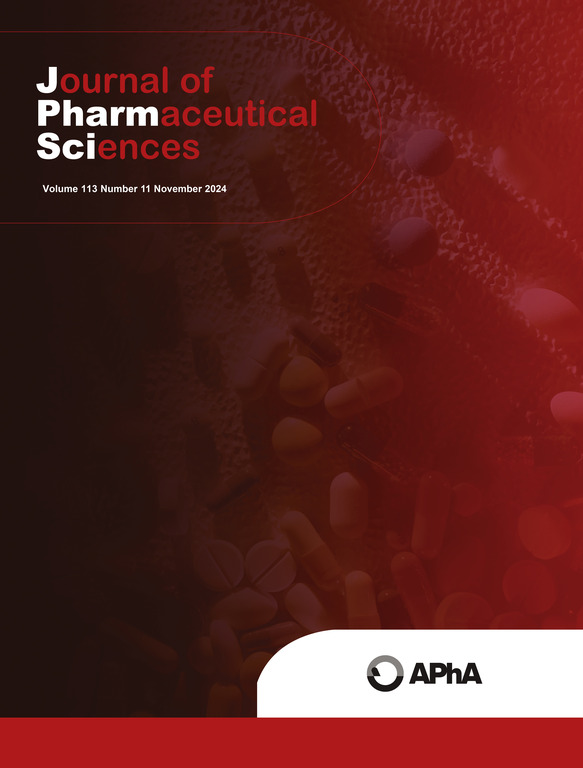Filling process-induced tribo-charging of lubricated and non-lubricated gelatine and HPMC capsules
IF 3.7
3区 医学
Q2 CHEMISTRY, MEDICINAL
引用次数: 0
Abstract
Tribo-charging can negatively affect pharmaceutical processes and the quality of pharmaceutical products. This study investigates electrostatic charging during the filling of hard capsules intended to be used in dry powder inhalers (DPIs). Gelatin and HPMC capsules without and with external lubricants (sodium lauryl sulfate, carnauba wax, and magnesium stearate) were subjected to automatic powder filling at two filling speeds and two humidities. Tribo-charging was compared among capsules and correlated with filling parameters using a lactose and 1 % budesonide formulation. Further, we evaluated the aerodynamic performance post-filling to determine the relation of the process-induced tribo-charging on in vitro performance. Our findings indicate that capsules exhibited lower levels of charge before processing. Post-filling, gelatin capsules exhibited lower charge compared to HPMC capsules. External lubricants decreased the charge for both types of capsules. At higher filling humidity (51 % RH), capsules generally exhibited lower charge uptake comparing the 22 % RH condition; higher filling speed tends to reduce charge uptake. However, no clear correlation between the charging of capsules during filling and aerodynamic performance was observed. Processing seems to be more affected by the capsule surface properties (roughness and presence of surfactant), while the inhalation performance appears to be affected by the interplay of capsule material and process parameters (filling speed and humidity).

润滑和非润滑明胶和HPMC胶囊的填充过程引起的摩擦充电。
三重带电会对制药过程和药品质量产生负面影响。本研究调查了用于干粉吸入器(DPI)的硬胶囊灌装过程中的静电充电现象。在两种灌装速度和两种湿度下,对不含和含外部润滑剂(十二烷基硫酸钠、棕榈蜡和硬脂酸镁)的明胶和 HPMC 胶囊进行了自动粉末灌装。使用乳糖和 1%布地奈德制剂比较了不同胶囊的三重充填情况,并将其与充填参数联系起来。此外,我们还评估了充填后的气动性能,以确定工艺引起的三重充填与体外性能的关系。我们的研究结果表明,胶囊在加工前的电荷水平较低。填充后,明胶胶囊的电荷量低于 HPMC 胶囊。外部润滑剂降低了两种胶囊的电荷。在填充湿度较高(51% RH)的情况下,与 22% RH 条件相比,胶囊的电荷吸收量普遍较低;填充速度越快,电荷吸收量越低。然而,在充填过程中胶囊的充填与气动性能之间没有观察到明显的相关性。加工过程似乎更多地受到胶囊表面特性(粗糙度和表面活性剂的存在)的影响,而吸入性能似乎受到胶囊材料和加工参数(灌装速度和湿度)相互作用的影响。
本文章由计算机程序翻译,如有差异,请以英文原文为准。
求助全文
约1分钟内获得全文
求助全文
来源期刊
CiteScore
7.30
自引率
13.20%
发文量
367
审稿时长
33 days
期刊介绍:
The Journal of Pharmaceutical Sciences will publish original research papers, original research notes, invited topical reviews (including Minireviews), and editorial commentary and news. The area of focus shall be concepts in basic pharmaceutical science and such topics as chemical processing of pharmaceuticals, including crystallization, lyophilization, chemical stability of drugs, pharmacokinetics, biopharmaceutics, pharmacodynamics, pro-drug developments, metabolic disposition of bioactive agents, dosage form design, protein-peptide chemistry and biotechnology specifically as these relate to pharmaceutical technology, and targeted drug delivery.

 求助内容:
求助内容: 应助结果提醒方式:
应助结果提醒方式:


